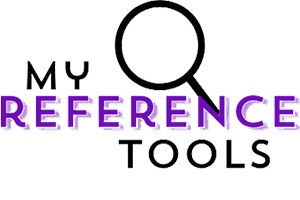Micro Credentials and Career Growth

Navigating today’s career landscape means staying ahead in an environment that moves fast and rewards adaptability. For professionals seeking to stand out, micro-credentials offer an efficient and strategic way to showcase skills, gain recognition, and drive career growth. But what exactly are micro-credentials, why do they matter, and how can they shape your career? Let’s explore these questions in greater detail.
What Are Micro-Credentials?
Micro-credentials are short, focused learning programs designed to teach specific skills or competencies. Unlike traditional degrees, which may take years to complete, micro-credentials are often modular, stackable, and delivered online or in person within weeks or months. They include certifications, digital badges, nanodegrees, and other concise programs that demonstrate expertise in areas ranging from data analytics and IT support to leadership and digital marketing.
For example, a digital marketing professional could earn a Google Analytics certification through a brief but intensive course. Similarly, a software engineer could gain a micro-credential in machine learning from an online platform such as Coursera or edX. These credentials are tangible proof of skills tailored for specific roles or sectors.
Micro-credentials derive their value from their practicality. They focus deeply on one topic or skill, filling gaps that traditional degrees often overlook. A marketing graduate, for instance, might not learn the intricacies of programmatic advertising during their formal education but can quickly gain this competency through a relevant micro-credential program.
Why Micro-Credentials Matter
Micro-credentials are transforming the way we think about education and professional development. Here are some key reasons why they matter:
Relevance
Employers often prioritize candidates with up-to-date skills and hands-on abilities. Industries evolve rapidly, introducing new technologies and methodologies that become essential to remain relevant. Micro-credentials allow professionals to showcase these in-demand skills and prove their knowledge in niche areas.
For instance, a data scientist earning a micro-credential in Natural Language Processing (NLP) can demonstrate their expertise in the latest trends within the AI landscape. Similarly, a human resources manager gaining certification in diversity, equity, and inclusion (DEI) shows their commitment to fostering better workplace policies.
Flexibility
Most micro-credentials are self-paced and offered online, making them accessible to professionals with packed schedules. Unlike traditional degree programs that often require furloughs or sabbaticals, micro-credentials can fit into your routine without the need for extended breaks.
This flexibility is particularly important for working parents, individuals with caregiving responsibilities, or those balancing multiple commitments. Imagine an accountant taking an online blockchain certification during evenings or weekends to stay ahead in an increasingly technology-driven financial field.
Recognition
Many providers of micro-credentials, such as universities, multinational corporations, or respected professional organizations, offer prestigious programs backed by their reputation. Employers value credentials issued by such authorities, as these indicate quality and reliability. For example, certifications from Microsoft, Amazon Web Services (AWS), or Project Management Institute (PMI) carry significant weight.
Stackability
A unique strength of micro-credentials is their ability to be combined over time into coherent learning journeys. Instead of committing to lengthy programs, professionals can acquire skills gradually and stack relevant micro-credentials to create a portfolio that reflects their evolving expertise and interests.
Imagine a web developer earning credentials in JavaScript, user experience (UX) design, and mobile-first web development. Individually, these credentials are useful. Together, they paint a picture of someone well-equipped to design and build cutting-edge, user-friendly digital platforms.
The Impact on Career Growth
Micro-credentials are far more than badges for resumes; they are career accelerators. They open doors, fast-track advancement, and bridge the skills gap.
Open New Opportunities
One of the most empowering aspects of micro-credentials is their ability to pave the way for career pivots. A teacher transitioning into instructional design may choose to complete a micro-credential in e-learning technology, equipping them for roles in corporate training. Likewise, a software developer wishing to enter the realm of cybersecurity might pursue certifications in ethical hacking or network security protocols.
This adaptability offers flexibility for people looking to reinvent themselves. Instead of starting over with a second degree, these credentials allow you to build upon your existing knowledge and transition into new domains.
Fast-Track Advancement
If you’re looking to climb the career ladder, micro-credentials can be an accelerator. By positioning yourself as someone with sought-after niche skills, you demonstrate to employers that you are not only proactive but also forward-thinking. For example, a healthcare professional who completes a credential in telemedicine technology stands out when applying for roles focused on remote patient care.
Employers value employees who take initiative. By mastering in-demand skills, you signal your commitment to improvement and mastery of evolving technologies, which could lead to higher responsibilities, promotions, and salary raises.
Bridge the Skills Gap
Industries like technology, healthcare, and finance are advancing at breakneck speed. This rapid pace often leaves professionals and employers grappling with a skills gap between current competencies and emerging requirements. This is where micro-credentials shine.
For instance, as automation gains traction, roles like business analysts and supply chain managers will require familiarity with artificial intelligence tools. Micro-credentials geared toward these tools, such as SAP Analytics Cloud or Python programming, empower professionals to stay ahead while helping organizations fill critical capability gaps.
Real-World Applications of Micro-Credentials
Micro-credentials have already made a significant impact across industries. Here are some examples:
-
Technology: IT professionals are increasingly turning to certifications in specific programming languages (e.g., Python or JavaScript) or platforms (e.g., AWS or Microsoft Azure). These credentials demonstrate that they can handle specialized projects or switch seamlessly between roles.
-
Healthcare: Nurses, technicians, and clinicians pursue micro-credentials in fields like telehealth operations, electronic health records (EHR) management, and patient-centered care to align with modern healthcare practices.
-
Business and Leadership: Executives and managers often complete micro-credentials in areas such as emotional intelligence, diversity training, or strategic decision-making. These programs enhance soft skills that are vital for effective leadership.
-
Education: Teachers pursuing credentials in online education tools like Moodle or Blackboard are better equipped to support remote learning environments.
Challenges of Micro-Credentials
While the benefits are impressive, there are some challenges to consider.
-
Proliferation of Providers
With so many organizations offering micro-credentials, it can be difficult to assess which ones have real value. Always look for programs backed by respected organizations or aligned with industry standards. -
Market Awareness
Not all employers are familiar with micro-credentials. Professionals must often advocate for their value by clearly articulating how these certifications align with job requirements. -
Overwhelming Choices
Professionals might struggle to select relevant programs amid the abundance of options. This underlines the importance of setting clear career goals before starting your micro-credentialing journey.
Getting Started with Micro-Credentials
For those ready to take the leap, here’s how to get started effectively:
-
Identify Your Goals
Start by pinpointing what you hope to achieve. Are you seeking a promotion, pivoting careers, or upskilling in line with industry trends? Clear goals help narrow your choices. -
Research Providers
Look for leading universities, respected companies, or reputable online platforms offering high-quality programs. EdX, LinkedIn Learning, Udemy, and Coursera are just some examples. -
Focus on High-Demand Skills
Prioritize competencies that align with growth industries. Technical areas such as cybersecurity, cloud computing, and data analytics remain key. Likewise, soft skills like communication and leadership remain valuable. -
Showcase Your Achievements
Display your credentials prominently on LinkedIn, your resume, and in professional profiles. Share updates when you’ve completed a course to show continuous growth.
Final Thoughts
The job market increasingly values flexibility, lifelong learning, and proof of updated skills. Micro-credentials embody these priorities and offer an accessible, efficient way to enhance your career. Whether you’re looking to switch industries, stay relevant in your current role, or build expertise in a niche field, micro-credentials can take you from where you are to where you want to be.
By choosing programs thoughtfully and showcasing your achievements boldly, you’ll not only amass new skills but also position yourself to seize opportunities and thrive in an era of constant change. Don’t wait for your next career move to happen by chance; make it a strategic step forward with micro-credentials.



